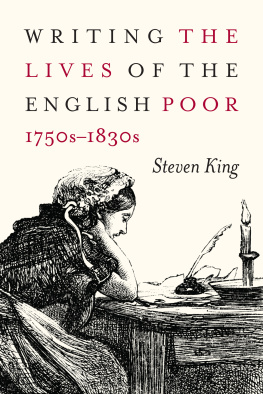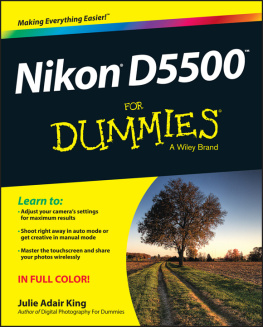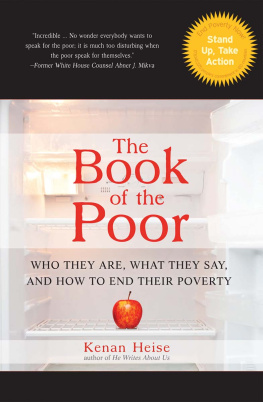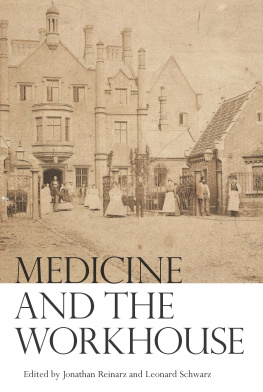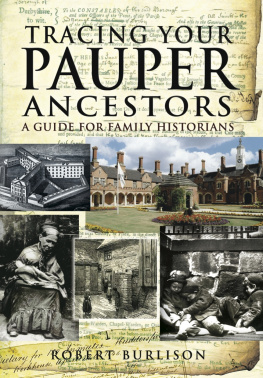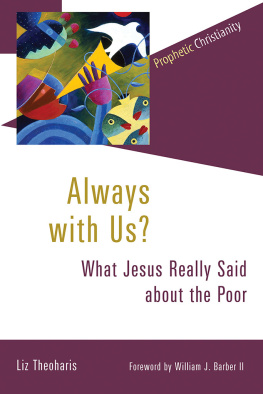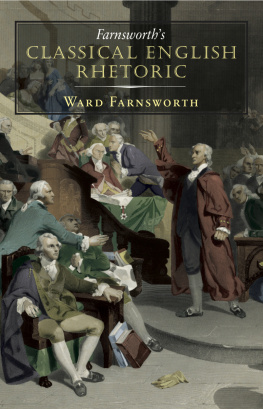
Writing the Lives of the English Poor, 1750s1830s
States, People, and the History of Social Change
Series editors Rosalind Crone and Heather Shore
The States, People, and the History of Social Change series brings together cutting-edge books written by academic historians on criminal justice, welfare, education, health, and other areas of social change and social policy. The ways in which states, governments, and local communities have responded to social problems can be seen across many different temporal and geographical contexts. From the early modern period to contemporary times, states have attempted to shape the lives of their inhabitants in important ways. Books in this series explore how groups and individuals have negotiated the use of state power and policy to regulate, change, control, or improve peoples lives and the consequences of these processes. The series welcomes international scholars whose research explores social policy (and its earlier equivalents) as well as other responses to social need, in historical perspective.
1 Writing the Lives of the English Poor, 1750s1830s
Steven King
Writing the Lives
of the
English Poor,
1750s1830s
STEVEN KING
McGILL-QUEENS UNIVERSITY PRESS
Montreal & Kingston London Chicago
McGill-Queens University Press 2019
ISBN 978-0-7735-5648-5 (cloth)
ISBN 978-0-7735-5649-2 (paper)
ISBN 978-0-7735-5650-8 (ePDF)
ISBN 978-0-7735-5651-5 (ePUB)
Legal deposit first quarter 2019
Bibliothque nationale du Qubec
Printed in Canada on acid-free paper that is 100% ancient forest free
(100% post-consumer recycled), processed chlorine free
We acknowledge the support of the Canada Council for the Arts, which last year invested $153 million to bring the arts to Canadians throughout the country.
Nous remercions le Conseil des arts du Canada de son soutien. Lan dernier, le Conseil a investi 153 millions de dollars pour mettre de lart dans la vie des Canadiennes et des Canadiens de tout le pays.
Library and Archives Canada Cataloguing in Publication
King, Steven, 1966, author
Writing the lives of the English poor, 1750s1830s / Steven King.
(States, people, and the history of social change ; 1)
Includes bibliographical references and index.
Issued in print and electronic formats.
ISBN 978-0-7735-5648-5 (cloth).ISBN 978-0-7735-5649-2 (paper).ISBN 978-0-7735-5650-8 (ePDF).ISBN 978-0-7735-5651-5 (ePUB)
1. PoorEnglandCorrespondence. 2. PoorEnglandHistory18th century. 3. PoorEnglandHistory19th century. 4. Public welfareEnglandHistory18th century. 5. Public welfareEnglandHistory19th century. 6. Great BritainSocial policy. 7. EnglandSocial conditions18th century. 8. EnglandSocial conditions19th century. I. Title.
HC260.P6K56 2019 | 361.6'5094109033 | C2018-905402-6 |
C2018-905403-4 |
For Maria, Ian, Astra, Tarun, and Jared
Contents
Tables and Figures
TABLES
FIGURES
Preface
This book started with the discovery in the archives at Leeds of a set of pauper letters for the area around Calverley in West Yorkshire on 17 December 1989. My doctorate, then in its very early stages, involved undertaking a family reconstitution for Calverley-cum-Farsley and surrounding villages and subsequently linking it to other sources related to the everyday lives of ordinary people. Until that December, my efforts to understand the experiences of the poor and the place of the poor law in their demographic and socio-economic life-cycle had concentrated on the overseers accounts. I had taken this record of payments made to the poor on a daily and weekly basis as a firm record of who got what and thus of the place of the poor law in everyday life in that locality. The letters of William Spacey turned this comfortable train of thinking on its head. He was not locally resident at the time he wrote, although he had been before and would be afterward. His letters were of the oral writing style that characterises Writing the Lives of the English Poor, with little punctuation, random capitalisation, and the poorest of spelling, overlaid with a strong thread of local dialect. They were fascinating as material objects and for what they revealed about a seam of popular literacy that I had been led by the historiographical literature to believe did not exist. But they were important too for other conceptual reasons. Over a series of letters, Spacey made claims on his settlement parish that included payment of arrears of rent, cash allowances, and a demand that the parish supply a midwife for the birth of his eighth child. His letters were polite but firm, and they occasioned several replies from local overseers, both positive and negative. The essence of this process was that poor relief was negotiated, sometimes between the claimant and the overseer and sometimes through the intervention of someone writing on Spaceys behalf. In this process, he did not get all that he requested, which clearly suggests that what was recorded in the overseers accounts represents the end of a process of relief, with the actual amount and form of relief given potentially bearing no relation at all to what was asked for. Here, however, was a further puzzle because, although I knew that Spacey had gained relief given that his letters acknowledging such survived, there was no record of him in what were seemingly highly comprehensive overseers accounts. It took me many months to work out that all relief given to the poor of the town in which Spacey lived was bundled together and given as a lump sum to a local grocer who dispensed relief when business took him to that place. The payment was to him, not the thirteen or so claimants who lived in the same community as Spacey. Further research brought the discovery of sections of the Calverley vestry book, which showed very clearly that the same negotiation process was at the heart of the relief eventually recorded in the overseers accounts for the proximately resident settled poor. And a further chance discovery of a payment ledger for a grocer in Leeds who was tasked with paying allowances to those settled in Leeds but resident in the Calverley area added more complexity. None of the poor named in that ledger, although variously observable in the reconstitution, appeared in the overseers accounts for Calverley, such that a parallel system of poor relief for the nonsettled poor was actually in process.
The logic of these discoveries had important implications for my doctorate. Subsequently, my work on the Old Poor Law began to reveal many hundreds more collections of letters that mirrored or exceeded those identified for Essex by Thomas Sokoll. A careful consideration of vestry minutes (where letters of this sort were read out or otherwise recorded) and overseers accounts (where the costs of receiving and responding to letters were recorded) showed clearly that letters were sent in large numbers to every parish in England and Wales, and indeed in Scotland. The fact that large collections of letters written by the poor, advocates, overseers, and other officials survive in places such as Kirkby Lonsdale or Hulme, I understood, was simply an accident of preservation. All parish archives would once have looked, at least in terms of the volume of letters, like these. Some confirmation of that fact was had when I found that an overseer in the town of Thrapston in Northamptonshire had at some point disposed of individual letters but copied all of them into letter books, which then survived in the towns archive precisely because they were books. In this sense, and given the sometimes contemporaneous survival of vestry books for hundreds of parishes, it became plausible and essential in my view to write about the process of poor relief rather than simply about the outcomes that have underpinned almost all of the historiography of the Old Poor Law. A grant from the Wellcome Trust and two grants from the Arts and Humanities Research Council, along with the efforts of many paid and unpaid research assistants, volunteers, and friends, generated a substantial set of letters by or about the poor, allowing me with confidence to reconstruct the tripartite epistolary world of the parish: claimant, advocate, and official.
Next page
